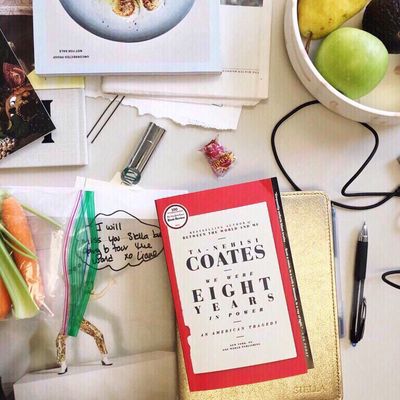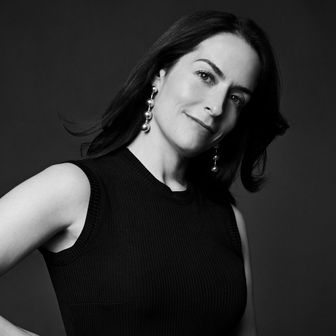
The weekend before Thanksgiving, old friends invited me to see Ta-Nehisi Coates speak at a local synagogue in Brooklyn. It was a Sunday night, so I made my kids dinner and changed out of the sweatpants I’d been wearing all day. As I was leaving, my older son held onto my arm and asked, “Will there be security?” Four weeks after the anti-Semitic shooting in Pittsburgh, he was worried for my safety. I assured him there would be metal detectors and a “no bags” policy, but it wasn’t even something I’d been thinking about before he asked.
At the synagogue, as we waited for the event to begin, I told my friends about my son’s fears and one of them recalled a message he heard on his sister’s answering machine in the 1990s. She was working in a women’s health center at a time when there were frequent shootings and bombings at abortion clinics. Her boyfriend had called and left a message to say he was worried about her. She played the voice-mail for her brother, my friend, and describing it in the synagogue 25 years later, he said he could still recall hearing the love and fear in the man’s voice. Our country has always been full of homegrown terrorists, which turned out to be one of the themes of the evening: not domestic terrorism per se, but the importance of locating ourselves in history. Coates’s work centers on understanding where we are now by looking at centuries of American policy, prejudice, and perseverance. He also talked about his creative process — having to protect his thoughts and the space to think them.
Earlier in the month, I’d been interviewed for a podcast by the food writer and editor Christine Muhlke. One of her last questions was, “Do you think it’s possible to have a rich inner life anymore?” I told her a story about how when I was a kid, my father taught me that we had very little control over the universe, but if a person could have one moment per day that made her feel something, that was a kind of accomplishment — and even if everything else failed, those moments would sustain her inner well-being. Back then I didn’t really understand what he meant, so my dad gave me examples: like, if you look out the window and the sun catches the ice on the branches of a tree with a glittering flash of light, that’s “a moment.” Beautiful moments could happen every day, even on bleak, otherwise bad days. He believed that giving yourself a little time away from other people kept you open to those moments.
Coates spoke about his decision to quit Twitter and how, during the weeks before he left, it consumed him and sucked up his ability to think. As he put it: “If I don’t exert control over what goes in then I won’t have control over what goes out.” He said he wanted to be “a decent person but a really good writer,” and that in order to do that he needed to shut things out. He also admitted that he’s been working for ten years on the book he’s trying to finish now, and that it took four complete rewrites for him to finish Between the World and Me. It was a reminder of how hard it is to carve out time for yourself to retreat, in order to advance.
Walking back home alone in the chilly night, I was devastated anew by my son’s anxiety, by our illusions of control, and how little power we really have to protect ourselves and the people we love. Not too long after the boyfriend left that voice-mail, my friend’s sister — brave, kind, and recently graduated from college — was killed in an accident while hiking.
It’s the final month of 2018, and there’s no end to the work that needs to be done in the world for our collective inner well-being. History is, after all, nothing more than a continuum of moments, ours and those around us — as Coates articulates so well. It’s how we recognize and connect them that makes the difference.
Love,
Stella





